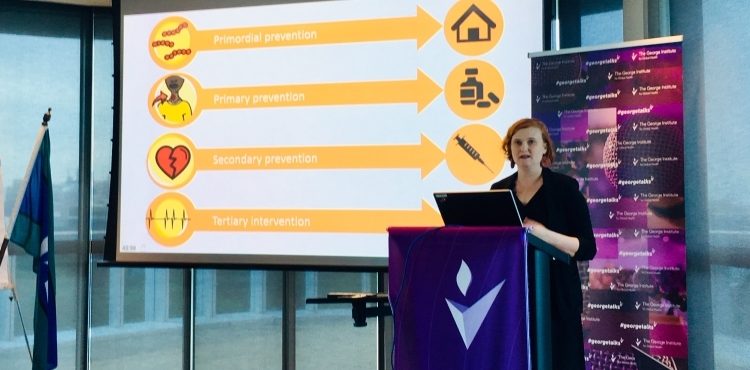
Dr Rosemary Wyber: Is this the beginning of the end of rheumatic heart disease?

Aboriginal and Torres Strait Islander peoples are 112 times more likely to suffer from rheumatic heart disease (RHD) than non-Aboriginal people in Australia but research, community engagement, funding and political priorities are helping to bring the end of RHD to fruition.
Dr Rosemary Wyber, PhD candidate at The George Institute for Global Health and Head of Strategy at END RHD, Telethon Kids Institute, presented the latest #GeorgeTalks ‘Is this the beginning of the end of rheumatic heart disease?’ in Sydney this week.
Dr Wyber revealed that nearly 5000 Aboriginal and Torres Strait Islander people are living with the effects of rheumatic heart disease (RHD) and on average, First Nations people with RHD die at 41 years of age.
In the hour long discussion Dr Wyber reminded the audience, made up of key stakeholders and researchers, that 70 years ago RHD was a common disease affecting all Australians, but now was largely a condition that only Aboriginal and Torres Strait Islander peoples live with. Dr Wyber said this state of affairs was “indefensible” but hoped that in the coming decades, RHD and many other preventable diseases would be beaten.
Dr Wyber spoke about the END RHD coalition, a partnership working across research, on the ground action and advocacy to tackle RHD. The benefits of working with a diverse range of other stakeholders were also highlighted as was the need to undertake health economic modelling on both inaction and action to engage governments. Dr Wyber highlighted the critical importance of Aboriginal and Torres Strait Islander leadership in bringing the end of RHD to fruition.
Updates on recent government funding and election commitments were also outlined.

